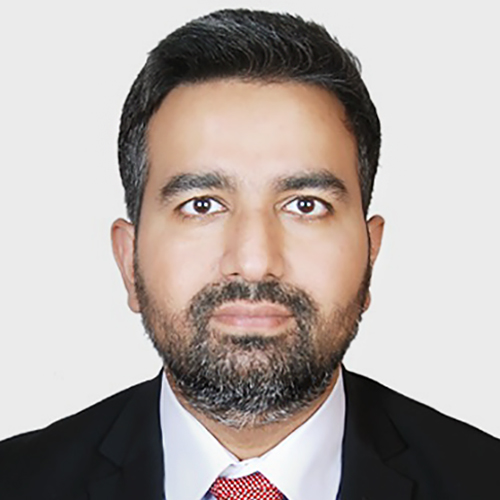 |
|
| Goyal: Strong Asian focus at Sibos |
Aseem Goyal, who joined SWIFT in January 2009 and is responsible for defining and driving SWIFT’s strategy in the payments and cash management markets in the Asia Pacific region, says Sibos in Hong Kong later this year will show how much Asia has moved to the centre of the global stage.
How has the volatile and more difficult environment affected SWIFT’s operations globally and across Asia?
There is heightened awareness of liquidity and risk management for all banks, following the recent events. Combined with the anticipated changes in the regulatory environment, liquidity management now appears on the top of the agenda at all level of discussions. SWIFT provides tools for banks to help them in this area – they are able to have complete visibility of their liquidity which might be sitting in various accounts and across different currencies and markets. Our cash reporting solution helps banks to receive consolidated, intraday and real time information, thereby giving them the right tools to manage their business and make informed decisions.
Historically, corporates that are multi-banked had to have individual connectivity with each of their banks. This resulted in multiple standards and formats, not to mention the cost of maintaining and upgrading different connections and lack of consolidated information. Using SWIFT, corporates can now have a single, standardized global platform, which enables them to have global visibility of their cash, improved security and reduced costs due to channel rationalization. All this results in better decisions and improved business performance.
As the situation gets tougher still, is it becoming a harder proposition to push SWIFT products and technology in Asia?
I think it is the other way around! In the present environment, SWIFT’s products and services are becoming more important to customers. Another example of SWIFT responding to the changing business is where we work with our banking customers to help them improve value proposition in worker’s remittance payments. Worker’s remittance is a huge business globally – financial flows last year were close to US$400 billion, there were 1.5 billion transactions. In addition, the number of workers who work outside their home country is expected to increase from 200 million presently to 280 million by 2050. So it’s a huge market but banks presently have less than a 15% market share.
Many banks offer excellent remittance services through their proprietary networks or bilateral relationships but a lack of global market practice for cross-border, person-to-person payments has prevented banks from scaling these services beyond a limited set of geographical corridors. So, SWIFT established an industry advisory group in 2007, which defined the areas which were viewed as critical from the point of view of workers remitting funds back home. They were: (i) predictability (meaning “when will the funds reach their destination?”) (ii) transparency of charges (unexpected fees and deductions at the beneficiary end are major irritants) and (iii) ease of use (requirement for bank codes and reference data, which remitters do not always have). Our worker’s remittance solution is presently in pilot form with 27 banks globally.
Hong Kong will be hosting the Sibos event this year. How will the crisis impact attendance of the event, considering how global organizations have become more hesitant to spend?
We get a lot of feedback that the value of Sibos is in fact stronger given the economic downturn: in one week, in one location, you get to see everyone from the industry and from around the globe. No other event offers that and Sibos is, therefore, seen as the must-do global event. As of today, the exhibition is over 90% full in terms of space and we are expecting a sell-out, as always. That is the most reliable indicator we have at this stage. As for delegates, typically when Sibos happens in Asia, we see an approximately 25% smaller attendance than when it is staged in Europe or in the US. Sibos 2006 in Sydney, the last time it was in the region, had close to 6,000 attendees. Sibos comes to Asia every three years, so we are encouraging more of the regional audience to make sure they are in Hong Kong – and then we also hope to see them at the next Asian Sibos, in Osaka in 2012.
How are the preparations so far?
Preparations are moving forward as planned and we opened delegate registration in mid-March. We have initiated an extensive dialogue with the community about the conference programme and currently looking at speaker suggestions. In late March, some 160 people from various exhibiting companies visited the Hong Kong Conference and Exhibition Centre for logistical briefings.
What can we expect in Sibos this year?
At this year’s Sibos, you can expect a strong Asian focus, reflecting not just the location of the event but the world’s attention on the role of Asia as a driver of renewed economic growth. So, the conference will definitely be thought-provoking. As the global financial community comes together a year after the events of September 2008, people will be asking tough questions of each other, and we know that Sibos offers them the forum to have this critical dialogue – and even move to collective action.
Over the years the Sibos event has been criticized as too Euro-centric. When do you see that changing and becoming more focussed on serving the needs of Asian clients?
I think everyone will be pleased to see that this year’s Sibos conference features strong focus on the issues that the Asian community wants to talk about – and what the rest of the industry wants to hear from Asia. We will have a plenary ‘Big Issue’ debate that will bring together Asian thought leaders to discuss opportunities for the financial industry in Asia, as well as six conference sessions (out of total of about 25) that can be considered ‘Asian’.
These include outlook sessions on Japan, China and India as well as panel discussions about the Asean initiative, the lessons learned from the Asian experience in the trade sector, as well as a session to debate the role Asian countries can (and should) play as the financial markets emerge from the events of 2008. The viewpoints of the Asian community will also be heard in other conference sessions about the future direction of payments, securities and trade. Finally, institutions from across the region will be at the exhibition, demonstrating the best of what the Asian industry has to offer.
With all the major Chinese banks taking booths, China will clearly be a focus at this event. The country is enjoying a remarkable increase in wealth and the gradual opening of the financial services sector. What does SWIFT see as the opportunities and potential bottlenecks there?
Since they went public over the last few years, Chinese banks have spent a huge amount of time and effort in improving their efficiency, productivity and risk management processes. As they grow larger and expand further into overseas markets, these issues will become even more important. We are working with the Chinese banking community on our liquidity and risk management solutions that I outlined earlier.
The response to another SWIFT solution, Exceptions and Investigations (E&I), has been overwhelming in China. E&I streamlines the back office processing of payments and helps improve customer service. So far, 16 Chinese banks have signed on to this solution – and this includes the biggest banks such as ICBC, Bank of Communications, China Construction Bank and Agricultural Bank of China. Our trade solution, called Trade Services Utility (TSU), is also extremely relevant to China, which makes sense given that it is a major global player in trade and some of the largest global corporates have set up manufacturing and exporting operations in China. TSU allows banks to extend their trade services to open account trade, and get involved throughout the financial supply chain.
So far, 10 Chinese banks are processing transactions using TSU, which again includes the biggest Chinese banks. In that context, current discussions on allowing the renminbi, instead of US dollars, to settle trade transactions with mainland China is a promising development. So, we are working with the banking community in China in a wide range of areas. There are also other areas, where we see a huge opportunity, but we are not there yet. One such area is domestic payments. In countries such as Singapore, Thailand and Australia, SWIFT provides the market infrastructure for high value payment systems (called RTGS for Real Time Gross Settlement). Hong Kong RTGS is scheduled to go live in the next couple of months. We would like to have a similar opportunity in China – and India for that matter – and are working with the financial community and the regulators in this regard. There are also significant opportunities in the securities market infrastructure, considering the large cross-border financial flows, which we expect to capture in the months ahead.
How many Asian corporates now use SWIFT and how do you see the number grow in the coming years?
We have 450 corporates globally who are using SWIFT, and this includes some of the world’s best known names, such as GE, Microsoft, Nestlé, etc. In Asia, we started our corporate programme in 2007 and have had great success. There are now 50 corporates in Asia on SWIFT, which again includes the largest names such as Panasonic, Samsung and Petronas. We expect this number to grow rapidly in the months and years ahead.
Prior to joining SWIFT, Aseem Goyal was with Standard Chartered Bank for 14 years in Hong Kong, Taipei, Shanghai and Bangkok, where he held senior positions in transaction banking, relationship management and strategy. He also spent 6 years with The Toronto-Dominion Bank in Canada.









